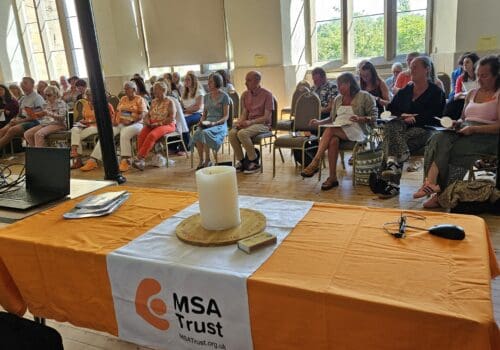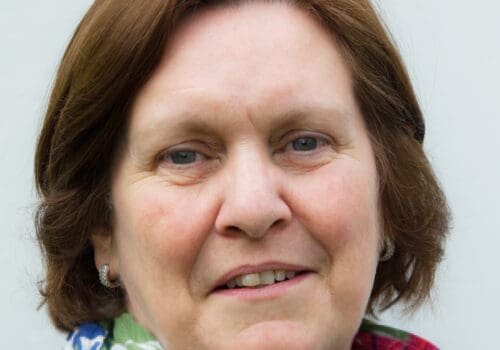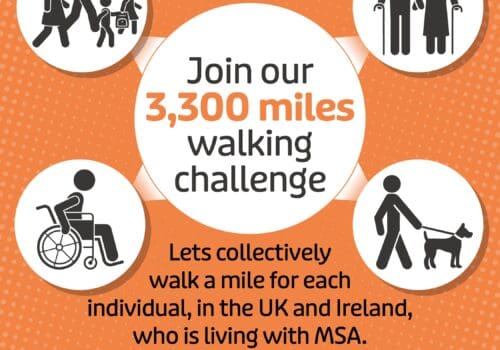Speech and Communication
ClearSpeechTogether versus standard NHS speech intervention: A single, mixed method, rater-blinded pilot randomised controlled trial for people living with MSA-C
Lead Applicant: Anja Lowit, Strathclyde University, Glasgow.
The word ‘Research’ might make you think of labs, white coats and test tubes and as such rather alien to your everyday life and the struggles that MSA brings. But the MSA Trust has decided to focus a good proportion of its funding effort on clinical research – research whose relevance to you, the MSA patient or carer, is more immediately obvious.
A notable example from this year’s grant awards is a research project to do with speech. As you probably know only too well, MSA often adversely affects speech. Volume drops, articulation suffers and you find your intelligibility declines. As communication is such a vital aspect of everyday life, this can be hard to take.
What can be done? Speech and Language Therapists (SLTs) are key. For those people with speech problems who are referred to the NHS, a standard Speech and Language Therapy course is likely initially to provide you with six weekly one hour one-to-one sessions with a therapist in which speech and communication difficulties are systematically addressed. The patient is taken through a number of different exercises and strategies aimed at having an enduring effect. This can be very beneficial but, of course, is quite expensive in terms of the use of the therapist’s time. It also begs the question of what further therapy might be needed for a progressive condition like MSA once the initial course is over.
What if a good proportion of the therapy was conducted in a group setting? The team running this project has already explored a programme, called ClearSpeech Together, with people who have other sorts of ataxia in which initial individual sessions with an SLT are followed up with frequent sessions in groups where the members follow a programme of exercises together. The SLT is still actively engaged but their time is used interacting with more people at once. Other important advantages are that patients are involved in mutual delivery of the therapy and are drawn into active participation with the others in the group thereby reinforcing the communication skills and strategies that easily get lost with conditions like ataxia and MSA. They feel better supported socially and psychologically than with individual SLT sessions. The work so far has shown that not only is this approach effective and a good use of therapists’ time but is also accepted well by the patients. The groups have often continued after the formally prescribed courses have finished, becoming valued social as well as therapeutically-targetted gatherings.
This particular project to be funded is aimed at testing out the feasibility and effectiveness of this approach amongst people with MSA-C over two years. If it has a positive outcome, a larger project will be designed with a view to making it standard within the NHS.
Disclaimer: The views and opinions expressed in the blogs published on these pages are those of the authors and do not necessarily reflect the official policy or position of the MSA Trust.
Recent Posts

MSA Candlelight 2025
19 Jun 2025 | 2 comments

International Nurses Day 2025
12 May 2025 | 1 comment

